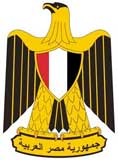Egyptians want to ban booze sales

The shelves of Amir Aziz's central Cairo premises are stacked with beer, wine and spirits, but they are invisible from the street. Aziz has covered the window with metal sheets to avoid angering conservative Cairo residents.
Like many liquor store owners in Egypt, Aziz says the mood has changed drastically since the 2011 uprising that toppled Hosni Mubarak and brought Islamists to power.
"There are no government restrictions on the sale of alcohol," Aziz told AFP. "It's the people who are giving us trouble."
Since the fall of Mubarak, Islamists long-suppressed by his regime have set up political parties and gained a voice in the media. In June, Mohamed Morsi, a member of the Muslim Brotherhood, was elected Egypt's first civilian president.
Consuming alcohol is banned under sharia Islamic law, which is the main source of legislation according to Egypt's new constitution.
But Aziz was doubtful the government would move to prohibit the sale of alcohol completely. "I don't think the government will ban alcoholic drinks because they generate a lot of revenue from taxes," said Aziz, who recently renewed his shop's alcohol licence without any difficulty.
No problems with authorities
"We have had no problems with the government so far. Our problems are always with the Salafists (ultra-conservative Islamists) who harass us, either verbally or with violence," he told AFP.
Earlier in May, gunmen opened fire on a cafe in the north Sinai town of El-Arish that sold alcohol, killing a waiter.
Officials from Morsi's government have made a string of statements in recent months that have raised the spectre of tighter restrictions on alcohol sales.
The government doubled beer tax to 200% this month, with taxes on other alcoholic drinks rising from 100% to 150%.
In February, the New Urban Communities Authority said it would stop issuing alcohol licences to new housing developments and in March Aviation Minister Wael al-Maadawi announced plans to ban alcohol in the duty free shops his ministry runs.
But authorities say no formal instructions have been issued banning the sale of alcohol.
Social pressure for Drinkies
Sherif, who did not want his last name used, manages Drinkies, an outlet for Al Ahram Beverages, Egypt's largest liquor store chain. He said they had not had any problems with authorities. 'It's against our customs, regardless of the Islamists." he said.
"The police give us no trouble, we get our licence renewed," he said.
But he says statements by Islamists, who oppose the sale of alcohol and drinking on religious grounds, are worrying.
"We have hired extra security outside the shops," Sherif told AFP.
Another employee at the store, Samir, said they have to endure insults from passers-by because they sell a product that is prohibited by Islam.
"We're not forcing anyone to buy alcohol," Samir said.
"Drinking alcohol is a personal issue," said Galal, a customer at Drinkies. "It's not for anyone to interfere."
Despite the absence of official restrictions, many liquor stores are covering their store fronts because of pressure from society, residents told AFP.
Ban welcomed say staff
At a duty free shop in central Cairo, employees said they would welcome a ban, even though they know it is unlikely because 80% of their revenue comes from alcoholic drinks.
"I am for a ban because it's forbidden (in Islam) and it's against our customs, regardless of the Islamists being in power," said Shaimaa Hassan.
Mohammed Zeidan, a spokesman for the Freedom and Justice Party (FJP), the political arm of the Muslim Brotherhood insists that in Islam "what is allowed is clear, and what is banned is clear".
He said the current laws do not represent the views of the FJP.
"The laws that would satisfy us will be drafted by the people through their members of parliament," said Zeidan.
Egypt has been without a parliament for almost a year after a top court declared it unconstitutional for technical reasons.
The price of a bottle of beer in Egypt has risen from 7.5 Egyptian pounds (around US$1.10) to almost 12 Egyptian pounds.
According to the 2013-2014 budget, the government expects tax revenues of around one billion Egyptian pounds (US$220m) from beer alone, six times the amount collected in the previous budget.
"Of course raising taxes on beer can be seen as a restriction but it also leads to more revenue for the government," said economist Mahmud Negm.
"The figures show that the Egyptian government needs Egyptians to drink more beer, and not restrict them," he said.
Source: AFP via I-Net Bridge
Source: I-Net Bridge

For more than two decades, I-Net Bridge has been one of South Africa’s preferred electronic providers of innovative solutions, data of the highest calibre, reliable platforms and excellent supporting systems. Our products include workstations, web applications and data feeds packaged with in-depth news and powerful analytical tools empowering clients to make meaningful decisions.
We pride ourselves on our wide variety of in-house skills, encompassing multiple platforms and applications. These skills enable us to not only function as a first class facility, but also design, implement and support all our client needs at a level that confirms I-Net Bridge a leader in its field.
Go to: http://www.inet.co.zaRelated
Advertisers brace for impact as TikTok faces uncertain future in the US 7 Mar 2025 Starting 2025, no junk food ads before 9pm in the UK 13 Sep 2024 Tunisian judge imposes media ban on a candidate for presidential election 16 Jul 2024 US Senate approves bill to pressure TikTok sale 24 Apr 2024 US House passes bill that could force TikTok sale or ban 14 Mar 2024























